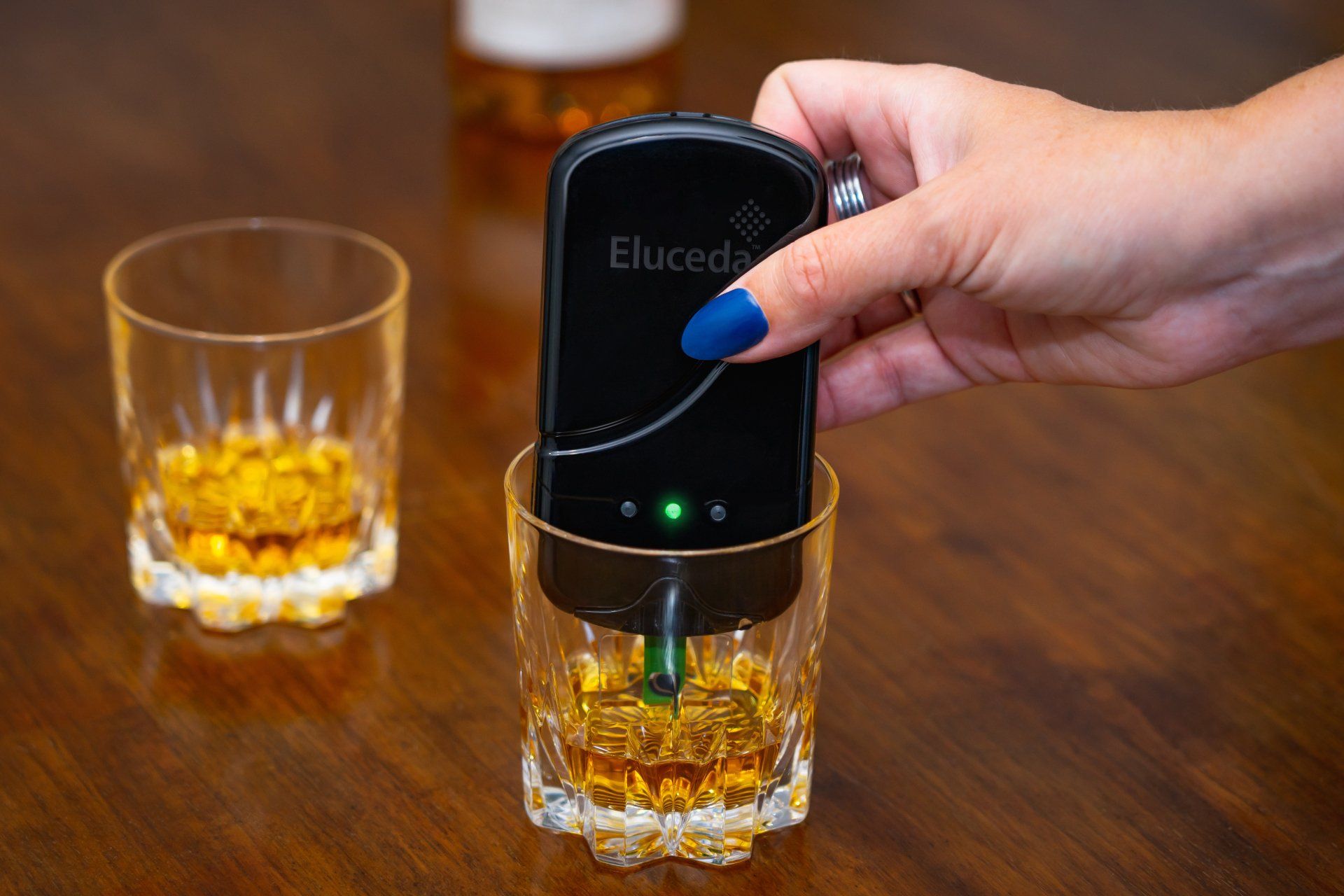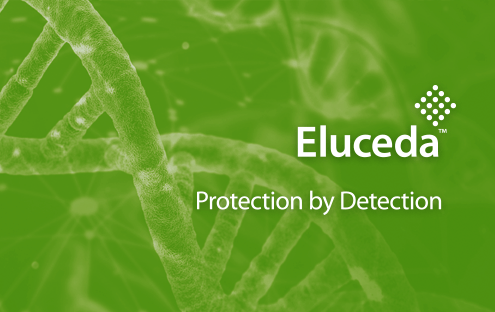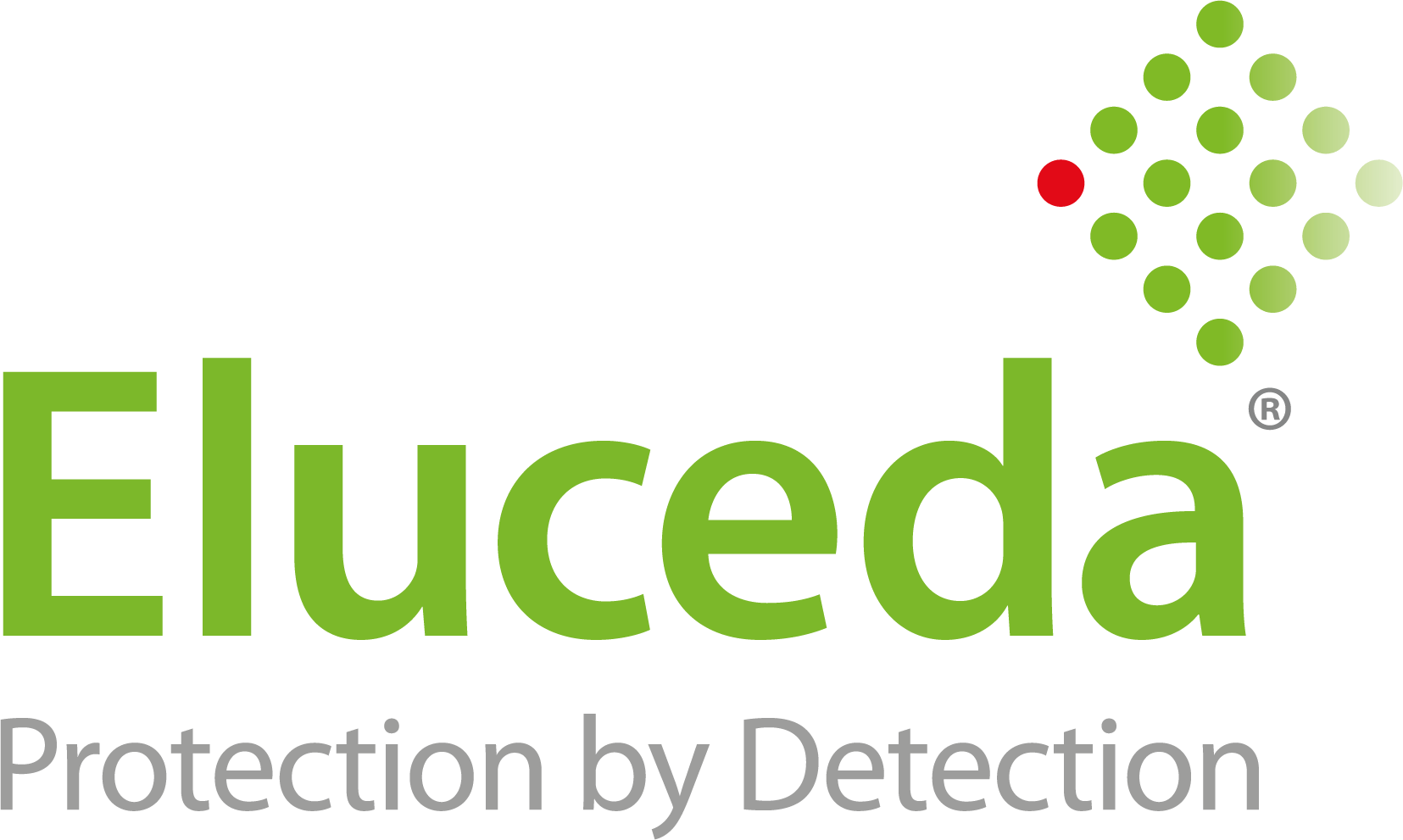BrandWatch Technologies to rebrand as Eluceda
15 December 2020
Leading covert solutions provider BrandWatch Technologies will rebrand as Eluceda in January 2021, marking an important step in the evolution of the Eluceda Group’s market positioning by providing a single name for its global detection technology business. The rebranding of BrandWatch follows Eluceda’s acquisition of the manufacturer of security materials and detection equipment in 2019. Under its new name, manufacturing of BrandWatch’s product range will continue to be produced from its base in the US. In addition, the business will offer a wider range of solutions, including Eluceda’s patented E-Sens™ Biological Detection System.
Commenting on the change, Neil Ivey former CEO of BrandWatch Technologies and now President of Eluceda said: “This is a truly exciting time for our business. Moving forward under one identity as Eluceda provides clarity to clients and the industries we serve along with access to a wider range of in-product authentication and verification technologies, supported by knowledge and expertise from across our wider business.”
Matthew Harte, CEO of Eluceda added: “We have already seen significant synergies since the acquisition of BrandWatch Technologies this year. By coming together under the Eluceda brand we deliver a simplified message to all our global customers and are better placed to provide the portable protection technologies that will help make the world a safer place.”

Eluceda is proud to announce that its Knowledge Transfer Partnership (KTP) with the University of Leeds has been awarded a Certificate of Excellence, rated “Outstanding” , by Innovate UK . The KTP, led by Associate Dr Tarun Kakkar , centred on the development of NanoTagg TM - a pioneering upconverting nanophosphor (UCNP) technology for product authentication and brand protection. NanoTagg TM harnesses the unique optical properties of UCNPs to create highly secure, tamper-proof tagging solutions . This represents a significant step forward in combating the growing global problem of counterfeit products, with applications spanning banknotes, tax stamps, legal documents, beverages, and luxury goods . Matthew Harte, CEO of Eluceda, commented: “We are honoured that our collaboration with the University of Leeds has been recognised by Innovate UK with this award of excellence. The development of NanoTagg demonstrates the power of industry–academic partnerships in driving meaningful innovation. Counterfeit products are a global challenge, and NanoTagg TM offers a novel, commercially viable solution with the potential to transform product security and brand protection across multiple sectors. We expect to see significant growth for this product over the next 24 months” This recognition underscores the technical innovation, impact potential, and commercial promise of the project, while also reflecting the strength of collaboration between Eluceda and its academic partners. Eluceda extends its sincere thanks to: Prof. Gin Jose – Technical Adviser, for his invaluable expertise and guidance Dr. Ian Eastwood and Jack Eastwood – for their dedicated supervision and support The University of Leeds – for their ongoing partnership and collaboration Eluceda looks forward to advancing NanoTagg TM towards real-world adoption , furthering its mission to deliver cutting-edge solutions that safeguard industries and consumers worldwide.

SecuriTagg™ offers a crucial, unparalleled layer of security that traditional methods cannot match. Our range of advanced taggant solutions provides the Level 3 (Sophisticated Covert) - type security with the level 2-type teller assist simplicity combined with Level 4 (Forensic Security) protection, making it virtually impossible to detect with 'simple' verification tools. Click to download further information on SecuriTagg

Detection technology specialist Eluceda has developed a quick, accurate and easy-to-use testing solution for identifying counterfeit human growth hormone (hGH) without the need for centralised testing infrastructure. Existing drug authentication methods tend to rely on specialist, expensive, and centralised equipment with samples often having to travel across borders, leading to lengthy waits on test results. Rapid detection of genuine or counterfeit Somatropin based formulations is provided by Eluceda’s E-Sens™ testing device which can analyse the unique electrochemical ‘fingerprint’ of the hGH using electrochemical detection and providing results in less than a minute. Somatropin is used to treat serious growth hormone deficiencies in children, including pituitary dwarfism, Prader-Willi syndrome, Turner syndrome, as well as adult-onset growth hormone deficiencies, but is not always readily available to those without health insurance. As it increases muscle mass and skin thickness whilst reducing adipose tissue it has gained unsubstantiated popularity for anti-ageing purposes, body building and athletic performance enhancement making it prevalent on the black market through online web sales. At best, counterfeit drugs may contain the active pharmaceutical ingredient (API) but generally this is exceptional. Normally, to increase profits, counterfeits contain a lower dose of material, have a complete absence of API and are made in non-sterile conditions. Counterfeits are manufactured without any adherence to manufacturing regulations, pose health risks which lead to an increased morbidity and mortality. By providing rapid, cost-effective, and portable authentication technology that requires little training to use, Eluceda hopes to both improve confidence and safety in hGH use by helping to remove counterfeit drugs from the supply chain as quickly as possible. The new technology is explored in Eluceda’s latest White Paper which highlights results of trials where its E-Sens reader, when presented with counterfeit or adulterated medicines. Dedicated software records test data which can be uploaded to a database accessible by authorised stakeholders across the world. Other relevant data such as time, geolocation and information specific to the electrochemical ‘fingerprint’ are also logged, allowing for decentralised analysis and for trends to be identified quickly and efficiently. The test process involves inserting a small sensor into the E-Sens reader, which is connected to a mobile phone, tablet or PC, and dropping a small amount of liquid onto the sensor. These specialised sensors are designed to be disposable and are able to detect small variations in electrochemical signal, caused by dilution, contaminants, etc. “Counterfeit drugs are an increasing public health issue as people look to buy medicines online,” said Dr Ian Eastwood, CTO at Eluceda. “Somatropin is just one of many and by ensuring the products are genuine through our easy-to-use authentication technology we can help maintain confidence and protect the health of people worldwide.” The simplicity of Eluceda’s authentication solution allows for a diverse range of stakeholders to carry out authentication tests such as enforcement personnel, customs officials and medical professionals. For additional information about our latest news, please follow us across our Social Media platforms, LinkedIn , Twitter & Facebook .

Detection and anti-counterfeiting technology specialist Eluceda has developed a rapid, accurate and easy-to-use testing solution for detecting counterfeit Covid-19 vaccines in the field – providing a practical authentication solution that doesn’t require centralised testing infrastructure or specialised personnel. Existing vaccine authentication methods tend to rely on relatively scarce, expensive, and centralised equipment with samples often having to travel across borders, leading to lengthy waits on test results. By providing rapid, cost-effective, and portable authentication technology that requires little training to use, Eluceda hopes to both improve confidence and safety in vaccine use. Eluceda’s solution is based on its E-Sens™ rapid testing device which can analyse the unique electrochemical ‘fingerprint’ of Covid vaccines and other liquids. When presented with counterfeit or adulterated vaccines, the reader will compare the ‘fingerprint’ of a relevant sample against genuine vaccines – providing results in less than two minutes. Dedicated software records test data which can be uploaded to a database accessible by authorised stakeholders across the world. Other relevant data such as time, geolocation and information specific to the electrochemical ‘fingerprint’ are also logged, allowing for decentralised analysis and for trends to be identified quickly and efficiently. The test process involves acquiring a relevant sample, inserting a small sensor into the E-Sens™ reader, which is connected to a mobile phone, tablet or PC, and dropping a small amount of liquid onto the sensor. These specialised sensors are designed to be disposable and are able to detect small variations in electrochemical signal, caused by dilution, contaminants, etc. “Both public and professional confidence is an absolutely critical component of vaccine use and counterfeits pose a serious risk to maintaining that confidence,” said Dr Ian Eastwood, CTO at Eluceda. “Putting accurate and easy-to-use authentication technology in the hands of people best placed to detect and ultimately stop counterfeits is a powerful tool in maintaining that confidence and protecting the health of people around the world.” The simplicity of Eluceda’s authentication solution allows for a diverse range of stakeholders to carry out authentication tests such as enforcement personnel, customs officials, logistics providers and even medical professionals. Even before the pandemic, the World Health Organization estimated that 1 in 10 medical products in low- and middle-income countries were substandard or falsified*. Reports of fake Covid vaccines appeared in early 2021 with distilled water, saline solutions or anti-wrinkle treatments being sold as the vaccine**. * https://www.who.int/news-room/fact-sheets/detail/substandard-and-falsified-medical-products ** https://www.fiercepharma.com/pharma/counterfeit-versions-pfizer-covid-19-vaccine-found-poland-mexico For additional information about our latest news, please follow us across our Social Media platforms, LinkedIn , Twitter & Facebook .
The National Office of Vine and Vitivinicultural Products (ONVPV) in Romania, is using Eluceda’s covert taggant marker with a unique machine-readable signature, to authenticate the provenance of its regional wines and protect drinkers from potential counterfeits. The ONVPV oversees national vineyard management and winemaking in Romania and supports the traditional production of wine in this designated geographical area. The security labels provide a clear brand identity for the ONVPV, which is easily recognisable on labelled bottles and products within a retail environment. Working closely with security label manufacturer Eltronis, Eluceda provided a tailored taggant to ensure that ONVPV wine labels were protected by the latest covert security technology, helping producers to stay one step ahead of the counterfeiters. The new labels build on ONVPV’s existing design and combine an overt hologram with high-level covert security. Eluceda’s taggant marker with its unique machine-readable signature provides an instant unambiguous response to the pocket-sized Reveal™ detectors used by enforcement officers in the field. The Reveal™ range of readers work in hand in glove with Eluceda’s MicroTagg™ and Securitagg™ inorganic taggant materials and are configured according to the ONVPV’s needs to identify genuine wines quickly and securely. Wine fraud is on the rise in all markets, helped in part by the growth of ecommerce. This poses significant dangers to both consumers and producers alike, as fraudsters will sometimes include dangerous additives and trust in a brand can often be broken if customers fall foul of counterfeiters. By adding authentication technology to wine bottles, the ONVPV is helping to counter this trend, promoting the provenance of the region, and building protection against potential counterfeit through the ability to identify genuine products. Richard Burhouse, Commercial Director for Eluceda, said: “We’re seeing growth in the use of our covert markers to help protect products of geographic importance, as they provide discrete and instant verification of genuine goods for enforcement officers working in the field. “We are delighted to be involved in this project and support progressive organisations such as the ONVPV who continue to invest in security technologies in order to promote their wines and take a clear stand against fraud.” For additional information about our latest news, please follow us across our Social Media platforms, LinkedIn , Twitter & Facebook .

Our new technology solution is the latest in a line of tests that use Eluceda’s established E-Sens™ handheld detectors and is capable of detecting hydrogen peroxide (H2O2) in water at concentrations between 1 and 1000 parts per million (ppm). Eluceda was approached by a leading supplier in the paper and pulp industry to design an accurate and easily repeatable test method that could detect hydrogen peroxide at the necessary concentrations within the paper manufacturing process. Our testing solution uses our E-Sens™ handheld detectors in combination with specialist electrochemical sensors to provide a simple ‘dip and read’ approach. A key feature of our test is the sensors’ ability to analyse hydrogen peroxide levels in the water even in the presence of pulp, providing an advantage over existing colourimetric analysis. The rapid and accurate testing capabilities provide manufacturers with the ability to be much more precise with their hydrogen peroxide usage – reducing wastage and saving costs while still ensuring it works effectively as a bleaching and biocidal agent. “As a science and technology-led business, we’re always excited when are able to use our collective expertise to devise a novel solution to a particular problem an industry is experiencing”, said Dr Ian Eastwood, Chief Technology Officer at Eluceda. “We are proud of what we’ve been able to achieve with our hydrogen peroxide test, both in terms of the technical achievement and effectiveness of it in driving efficiencies and reducing waste in the manufacturing process.” The technology behind our test for hydrogen peroxide is not limited to the paper and pulp industry and can be applied to various chemical testing requirements in different manufacturing sectors. “While this is a specific industry application, our detection technology can be used across many different sectors and different compounds, and we’re excited to build the next development for our, quick, cost-effective and portable testing solutions,” Ian concluded. To find out more about our products and testing technology visit our pages.

Detection technology provider Eluceda has developed a rapid and easily portable method to authenticate genuine whisky by detecting the unique electrochemical ‘taste’ of specific batches of product. Spirits are particularly vulnerable to a variety of issues from counterfeiting to refilling and dilution, with whiskies of all types affected. According to an EU IPO report , the industry loses ~€1.3 bn of revenue annually in Europe alone due to counterfeit wines and spirits, corresponding to 3.3% of the sectors’ sales. In this environment, the ability to authenticate bottles of whisky quickly and cost-effectively is increasingly important to ensure consumer confidence and brand reputation. Without the need for additives or other on-product security measures, Eluceda’s new authentication solution uses its established detection technology to identify the unique ‘taste’ of a specific whisky – formed as a result of each drink’s specific chemical makeup. Results are provided in a few minutes with minimal training needed for those carrying out the test. Samples and consultancy for the feasibility study were provided by the Scotch Whisky Research Institute (SWRI) and tests have been able to identify genuine whiskies from those that have been diluted with water, ethanol or other whiskies as well as from counterfeits. “Authentication is a key tool in combating counterfeiters in any industry but often methods for food and drink are slow and expensive, sometimes requiring central laboratory testing, making for long lead times” said Dr Ian Eastwood, Chief Technology Officer at Eluceda. “Our solution helps change this by giving distilleries, brands and enforcement officers a rapid and accurate way to prove that their whisky is genuine.” Eluceda’s E-Sens™ handheld detectors use customised electrodes containing specific catalysts which react with the unique groups of molecules in the whisky to produce a digital ‘fingerprint’. Each reading is analysed using algorithms which compare the sample being tested against a database of genuine whisky samples. Every test is approached on the basis of “is this a genuine sample?” and the algorithm generates a percentage of similarity by comparing against a standard held in a secure database. Results from across the world are reported in real-time, including geolocations of each test adding extra functionality to the system. Eluceda’s whisky authentication solution is launching at the 7th Worldwide Distilled Spirits Conference which is being held virtually between the 6th -8th September and can be seen in person at LuxePack in Monaco in the “Digital Village” on September 27-29th, with partners being sought for whisky and other spirits to build a broader spectrum of batches to populate the database and help enforcement by brands. Dr Eastwood concluded; “Our rapid authentication technology provides a valuable tool for brands and enforcement officers. From detecting the adulteration of whisky samples with water or other liquids, through to identifying potentially dangerous counterfeits, we have a quick and simple test that delivers consumer confidence and maintains brand reputation”. For additional information about this test or Eluceda's wider detection capabilities, please follow us across our Social Media platforms, LinkedIn , Twitter & Facebook .

Eluceda Limited, the authentication and detection solutions company, has completed a £1.1 million institutional fundraising. The new funds will be used to build out the Company’s management and technical staff, enabling Eluceda to accelerate its growth plan. Eluceda has built its position as an international authentication and detection solutions company serving the anti-counterfeiting and bacterial detection industries in markets such as food and beverages. Backed by its strong IP, and with operations in the UK and US, the Company’s technology delivers fast, affordable, simple to use “lab in your hand disruption” i.e. providing lab quality results in the field in near real time with customers able to upload results into databases for subsequent action and analysis. Eluceda has received strong investment support due to its long-standing customer relationships where it protects their brands, supports revenue generation and maintains consumer health. Matthew Harte, CEO of Eluceda, said: “I’m delighted with the significant interest Eluceda received as part of this fundraising and welcome our new shareholders. We have a clear strategy in place to drive organic growth in our existing markets of anti-counterfeit, bacterial detection and diagnostics and have already made a great deal of progress both in terms of creating a truly differentiated offering and working hand-in-hand with some of the largest companies in the sectors that we serve. The markets we operate in are large, global, are growing strongly and Eluceda is in a good position to accelerate its growth trajectory with the proceeds from this fundraising.” For additional information about the investment or the latest news, please follow us across our Social Media platforms, LinkedIn , Twitter & Facebook .

Detection technology business Eluceda has provided a rapid and objective method of ensuring that each batch of Wella hair dye delivers the perfect colour results no matter where it has been manufactured. Hair dyes use highly complex formulations to provide precise colour changes. Ensuring each batch contains the correct proportion of ingredients is therefore an essential step in the manufacturing process and delivery of the correct colour performance. Traditionally, this would be done using a ‘dye out’ test which would assess a colour change on a sample of hair or fabric – a method both subjective and time consuming. Wella sought a quantitative, objective approach that would measure and prove the dyes were in specification and approached Eluceda to provide a solution. Calling on all of the core competencies Eluceda use to detect small particles and digitise results, they were able to come up with a bespoke analytical test that involved analysing the colour development across the entire visible range and identifying specific signatures for each dye colour. Using complex mathematics, a central database is cross-referenced to analyse each batch and calculate what the final colour result is going to be – all within six minutes! Testing time has been reduced significantly and waste reduced as smaller batches can now be made and accurately validated, providing significant working capital and sustainability benefits for the business. Importantly, the quality of the hair dyes produced across Wella’s production sites in Germany, Mexico and Thailand in now assured and perfect, consistent colour results are delivered for consumers. With all data stored in a central database, the documentation is also digitised and results remain available across the business for any future review. “Our approach and technologies have provided the perfect solution for validating performance and results for the complete range of Wella hair dyes, progressing from subjective, analogue testing to an objective, digital environment” said Ian Eastwood, Chief Technology Officer at Eluceda. Dr. Lynsey Godfrey, R&D Director at Wella added, “Testing is now assured across our global network and we can now be confident that we deliver the perfect hair colour results for each batch of dyes we produce. We are delighted with the relationship and solution developed with Eluceda.” Eluceda’s technologies can detect and authenticate a wide variety of products and are used in quality assurance and product authentication solutions worldwide. For additional information about the investments or the latest news, please follow us across our Social Media platforms, LinkedIn , Twitter & Facebook .

Detection technology business Eluceda has received backing from the Biotechnology and Biological Sciences Research (BBSR) in support of its collaboration with the University of York and the development of novel protein scaffolds for use in biosensors. Eluceda’s patented E-Sens™ technology detects small molecules, DNA or pathogens in a wide range of specialist applications ranging from identifying counterfeit consumer goods to discovering bacteria within healthcare facilities. The Impact Acceleration Award from the BBSR will support the next generation of E-Sens™ product developments, as they focus on the sensitivity of the latest detection molecule signatures and their ability to work across a broader range of liquids and materials. Eluceda aims to revolutionise the portable counterfeit detection market with its suite of on-product and in-product authentication solutions from its R&D facility, based at the University of York. The business is currently working with several partners to roll-out E-Sens™ and sees a potential limited only by the imagination. Ian Eastwood, chief technology officer at Eluceda said, “Technology is essential to protecting goods from counterfeiters. The BBSR funding will play an important part in the development of the latest molecular probes and building their role in helping identify genuine products across a wide variety of different consumer goods.” “We are delighted to underpin our strong relationship with the University of York on this project and look forward to seeing these developments provide brands with a means to eradicate counterfeiting.” For additional information about the investments or the latest news, please follow us across our Social Media platforms, LinkedIn , Twitter & Facebook .






